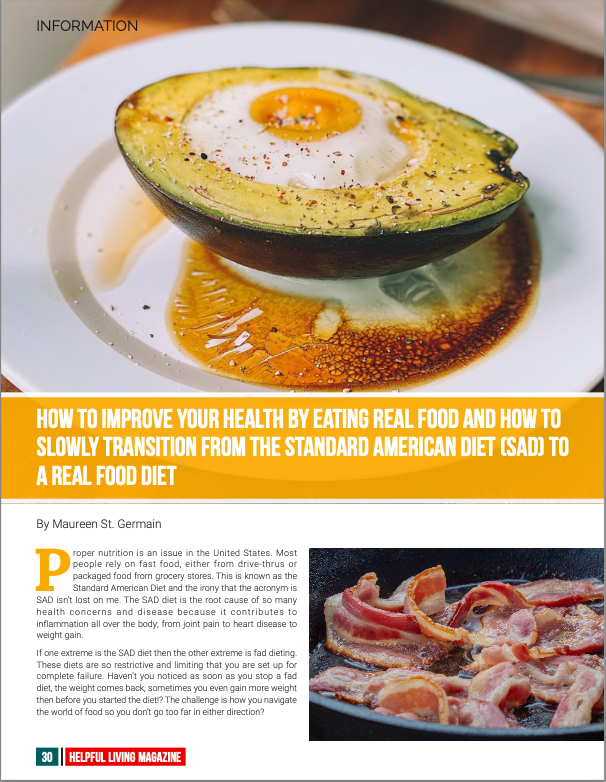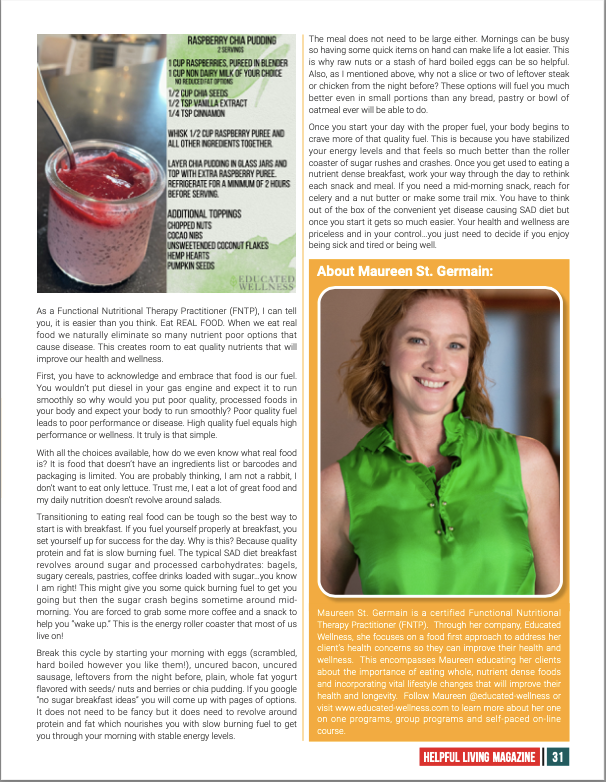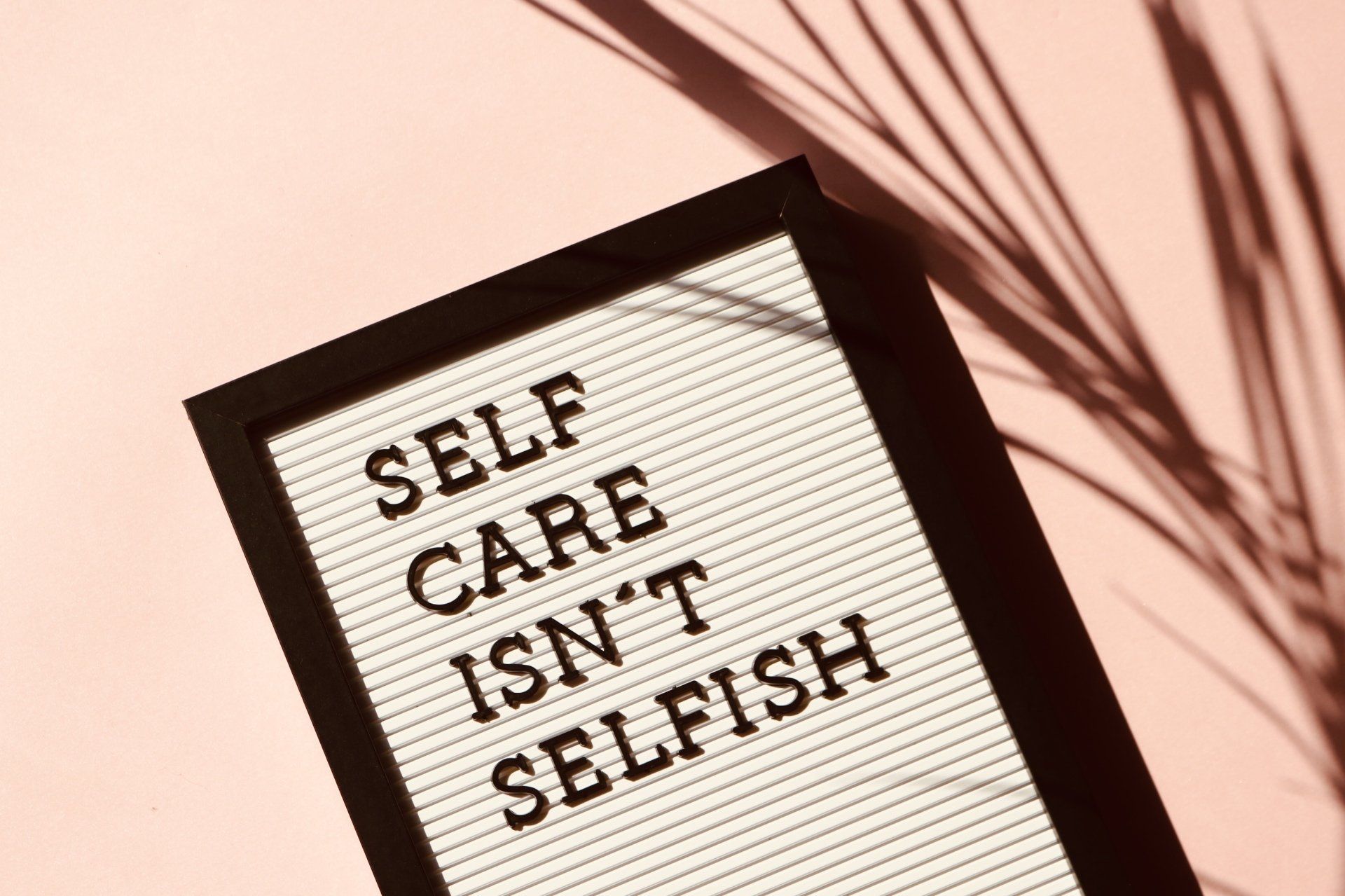According to Merriam-Webster ‘diet’ has a few definitions, the two I want to focus on are
-food and drink regularly provided or consumed and
-a regimen of eating and drinking sparingly so as to reduce one's weight
I wish we could FORGET the second definition completely and use the word diet to refer to eating and drinking regularly.
For many of us the word ‘diet' might as well mean deprivation. It makes us think of everything we need to give up and how we will feel hungry and miserable the entire time we are on the diet.
When you decide to do a fad diet, how does it go? How long does it last? Do you think longingly about foods you have given up? How long does it take for you to give in and binge on those foods you love?
This is not sustainable.
So what is the answer? Eating to properly nourish and fuel your body and mind.
This means we need to change our mindset. It isn’t easy, our brain is extremely powerful. We need to take time to evaluate what needs to change. This is a bio-individual list and deserves some thought. It can range from weight loss to joint pain to dry skin. No symptom is too small or too big, if it affects your life, it is worth being addressed.
We need to take a very long and honest look at our current food choices. Here are a few questions to ask yourself and be honest with the answers.
1) How much of it is actually nutrient dense food and how much comes out of a box and has a long ingredient list?
Processed foods are nutrient poor. Many nutrients are stripped during processing. Poor quality and inexpensive ingredients are also used to create a higher profit margin for the manufacturer. For example, you will find canola oil in the ingredients list, not olive oil or avocado oil. For sweeteners, high fructose corn syrup would be used, not sugar, honey or maple syrup.
We need to wake up and realize that the manufacturers want us addicted to these foods so they are loaded with salt and fake sugars. The excess sugar and salt make these foods hyper-palatable making you constantly crave more. This is great for their sales numbers but not for your health. Processed foods lead to so many health issues ranging from acne to cholesterol to diabetes. The fewer the ingredients the better…it means you are eating whole foods that are nutrient dense.
Some people use the “5 and 5” rule when shopping. This means the products can have no more than 5 ingredients and no more that 5 grams of sugar per serving.
Staying in the outer perimeter of the supermarket will also help. The interior aisles are filled with long-term, shelf stable items filled with nutrient poor ingredients-that’s what keeps them shelf stable for so long!
2) Do you eat the same short list of food regularly and rarely deviate?
Our bodies need a wide array of vitamins and minerals. There is a short list of vitamins our bodies can synthesize but most are considered “essential.” Essential in this instance means we MUST get these vitamins and minerals from outside sources…i.e. from food, specifically, nutrient dense whole food.
When we eat a limited amount of food, we are also limiting the number of vitamins, mineral and fat sources we consume.
An example to illustrate my point is that many of us are magnesium deficient. Magnesium facilitates so many actions in the body. It helps to make proteins and to utilize energy. Everything in our body is a protein or made by proteins. Everything you do, even sleeping requires energy! So yes, if you aren’t eating magnesium rich foods, you are most likely operating below your optimal levels.
Once the quality of your food has been addressed, you can evaluate the why
behind your eating.
3) Why do you eat?
We all need to eat to stay alive, this is a fact. When it is 9pm and you have already eaten dinner but you still get off the couch to grab a pint of ice cream and finish it off this is not about nourishing your body.
There are many reasons why this scenario occurs and the majority of them have nothing to do with hunger.
Boredom. Stress. Loneliness. These are the first three reasons that come to mind. We are looking to food to fill an emotional void not a hunger void. Next time you are about to reach for the snack, take 10 seconds to just think of the why behind it. Boredom? Go do something different. Stress? Maybe read or turn on a comedy to help laugh the stress off a little. Loneliness? Give a friend or family member a call.
It is important to note that eating hyper-palatable foods later at night can affect the quality of our sleep, cause weight gain and inflammation. All of these cause extra stress on our body and lead to illness.
The questions listed above can be tough questions to ask yourself. Even acknowledging that you need to make changes is a fantastic step in the right direction so give yourself some credit.
It can take outside perspective to help you sort through these questions. This is where my expertise as a Functional Nutritional Therapy Practitioner (FNTP) can help you to see patterns, address underlying issues and lead through the steps to make realistic changes that will stay with you so they become part of your lifestyle, not just a diet you follow for 2 weeks.









